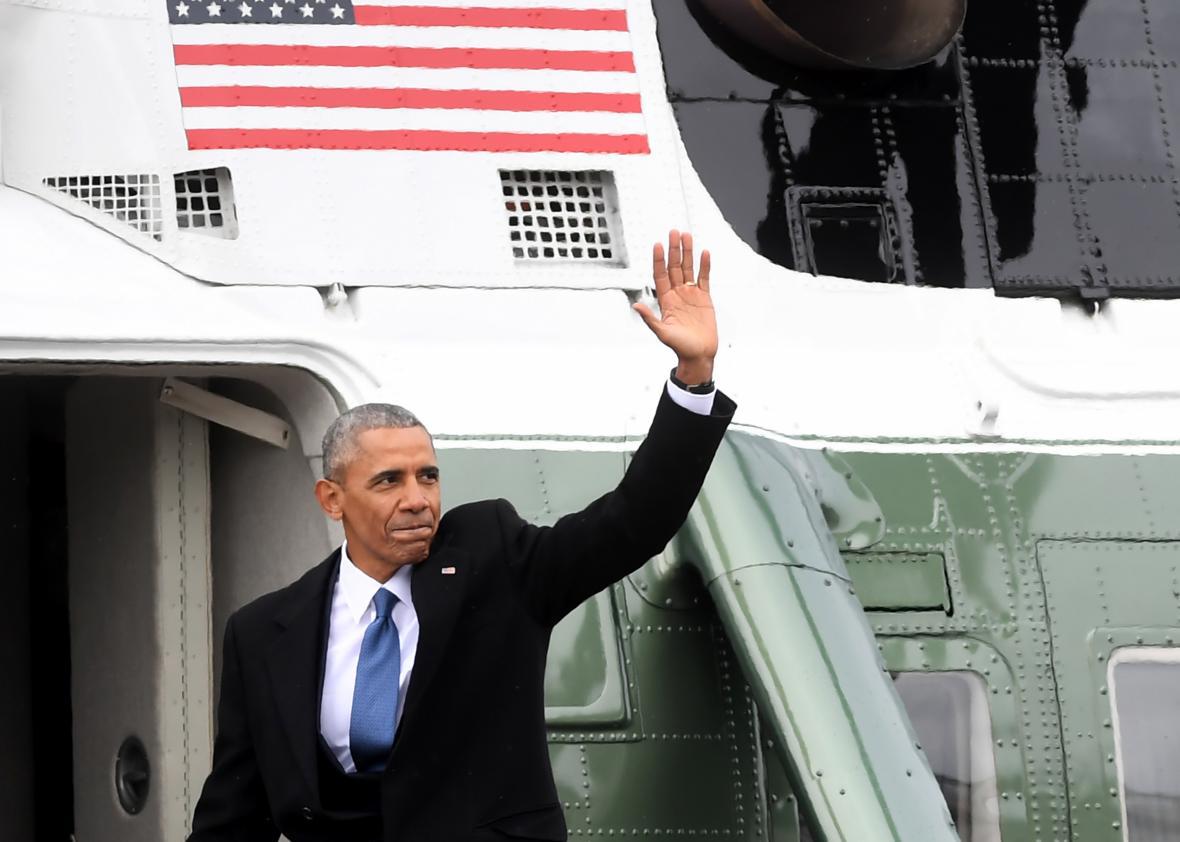The Bureau of Labor Statistics released on Friday the first jobs report of Donald Trump’s presidency. Except it sort of isn’t. The government would have gathered its data before the inauguration, so in a sense Friday morning’s figures are really the last snapshot of the Obama economy. You could argue that Donald Trump’s election was already having some sort of an effect—small business optimism went up a bunch after the election, markets were trading on his tweets, his agenda was shaping up—but it’s not as if our Dorito in chief was making policy yet.
So what did we learn from the report? Mostly that Trump inherited a reasonably strong economy, which is now his to ruin. The U.S. added 227,000 jobs in January and has averaged 183,000 over the past three months. The unemployment rate is basically level at 4.8 percent. Labor force participation rose slightly. Average hourly earnings are up 2.5 percent over the year. I think there’s still room for improvement (or some slack, as labor economists would say): The raw employment rate among 25-to-54-year-old Americans—the one jobs stat that I think our unemployment-rate-truther president should follow—has been stuck at 78.2 percent for four months now, and should be able to go higher. But things are more or less OK.
Some political commentators like to argue that Donald Trump is now in a worse position than if he were coming into office during a weaker economy, since he’ll be blamed for any downturn. But do you remember 2009? I am pretty sure Obama would have preferred it if item No. 1 on his to-do list wasn’t “save the United States from plunging into a new depression.” He did that, to an extent, and the aftershocks still paved the way for the Republican takeover of Congress in 2010. Granted, not every recession is going to be the Great Recession. And you could argue Ronald Reagan lucked out taking office in the middle of a Federal Reserve–induced double-dip recession, since he got the credit once Paul Volcker stopped throttling the economy with high interest rates. But getting the country out of a slump can be hard. And we have absolutely no evidence at this point that Trump is capable of thinking through or executing any kind of counter-cyclical macroeconomic policy should the economy hit the skids—and he hasn’t even appointed a chair for the Council of Economic Advisors to help him figure it out.
Reassuringly, this economic recovery has shown itself to be pretty impervious to political nuttiness over the past several years. I mean, if the debt ceiling showdowns didn’t send it way off course, the day-to-day lunacy of the Trump administration probably won’t either.
So our new president has started off his term in office on the economic equivalent of the bunny slope. Let’s see if he can stay upright.
